As a member of Platform University for a couple of years now, I’ve come to see a membership as what it really is: one of the most essential resources any business-building entrepreneur could have.
That’s why when Platform University’s new Dean, John Meese, asked me to help with its rebrand; I was particularly thrilled. Not only because I enjoy my work (and working with John), but also because as a member myself, I’ve seen first-hand how valuable the brand has become to thousands just like myself.
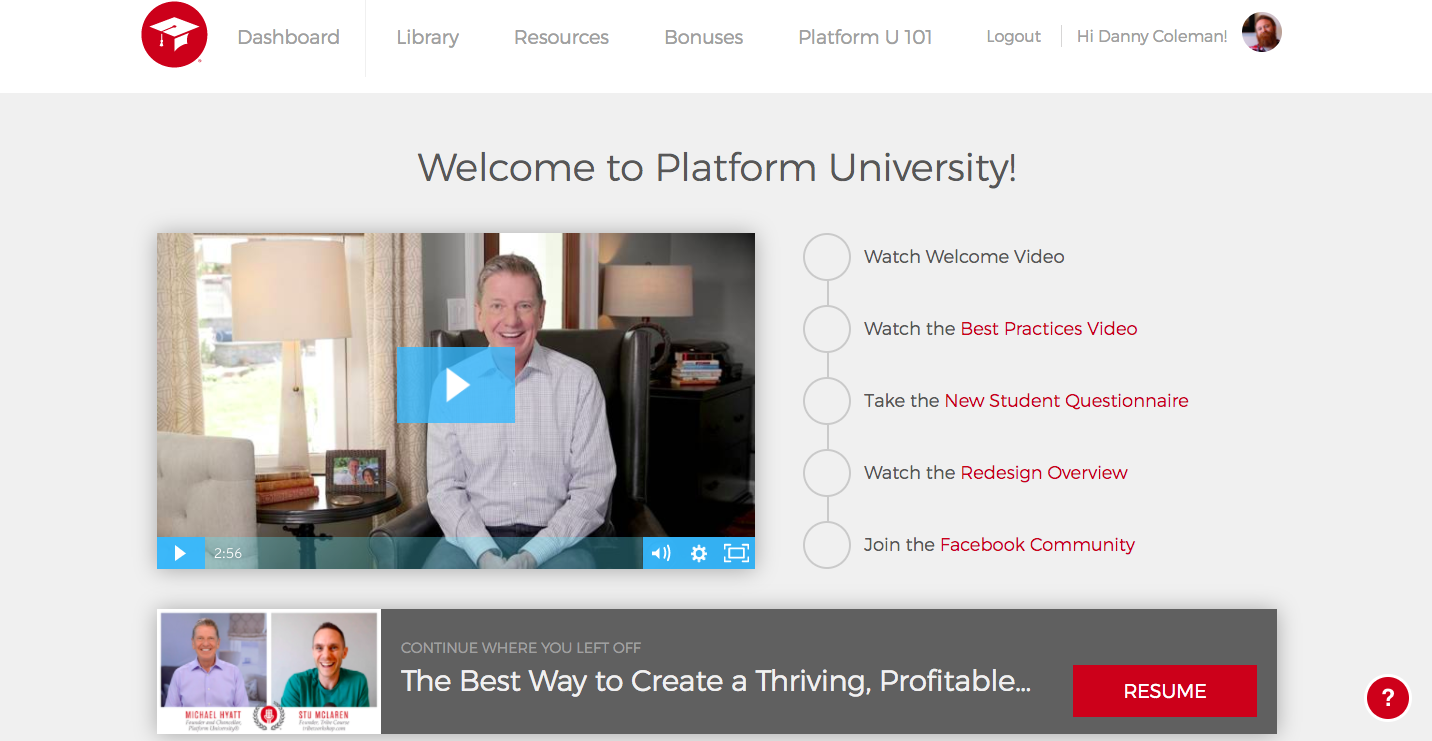
What a Brand Is Not
Before I jump into specifics of the Platform University revamp, I wanted to take a quick aside to an important point that I cover in-depth in my free Brand Building Mini-Course: what a brand is not.
The term “branding” gets tossed around a lot these days and nine times out of ten; it’s used incorrectly.
A brand isn’t a logo, colors, typography, a product, or even a business.
A brand is simply this: a promise you make to your target client or customer—and the way in which you deliver on that promise.
Here’s Platform University’s brand promise:
Only Platform University offers dynamic, personalized teaching to entrepreneurs building an online platform, regardless of their place in their platform journey.
There isn’t space here to tackle every aspect of the brand strategy we explored with Platform University, however, here are some of the top benefits John articulated that sets the brand apart from others:
- Studio-quality training from industry-leading experts
- Start-from-scratch brand identity training
- Deep partnerships with industry providers like ConvertKit and Teachable
- Dynamic training that changes based on progress
From here, it was my task to take this (along with the rest of the brand strategy) to create the new brand identity (things that visually represent the brand) and touchpoints (places where people interact with the brand).
A New Logo and Identity Set
Most think of a “rebrand” involving a new logo and Platform University was no different.
We explored a pretty vast number of concepts, but at the end of the day, the goal was to put the focus more upon “teaching” and simplicity in the new identity.
The most timeless, compelling, and memorable visual brand elements are typically those that are the most simple. The goal was to create a logomark and set that did this while remaining true to Platform University’s original look.
Here’s the new, finalized Platform University logo signature:
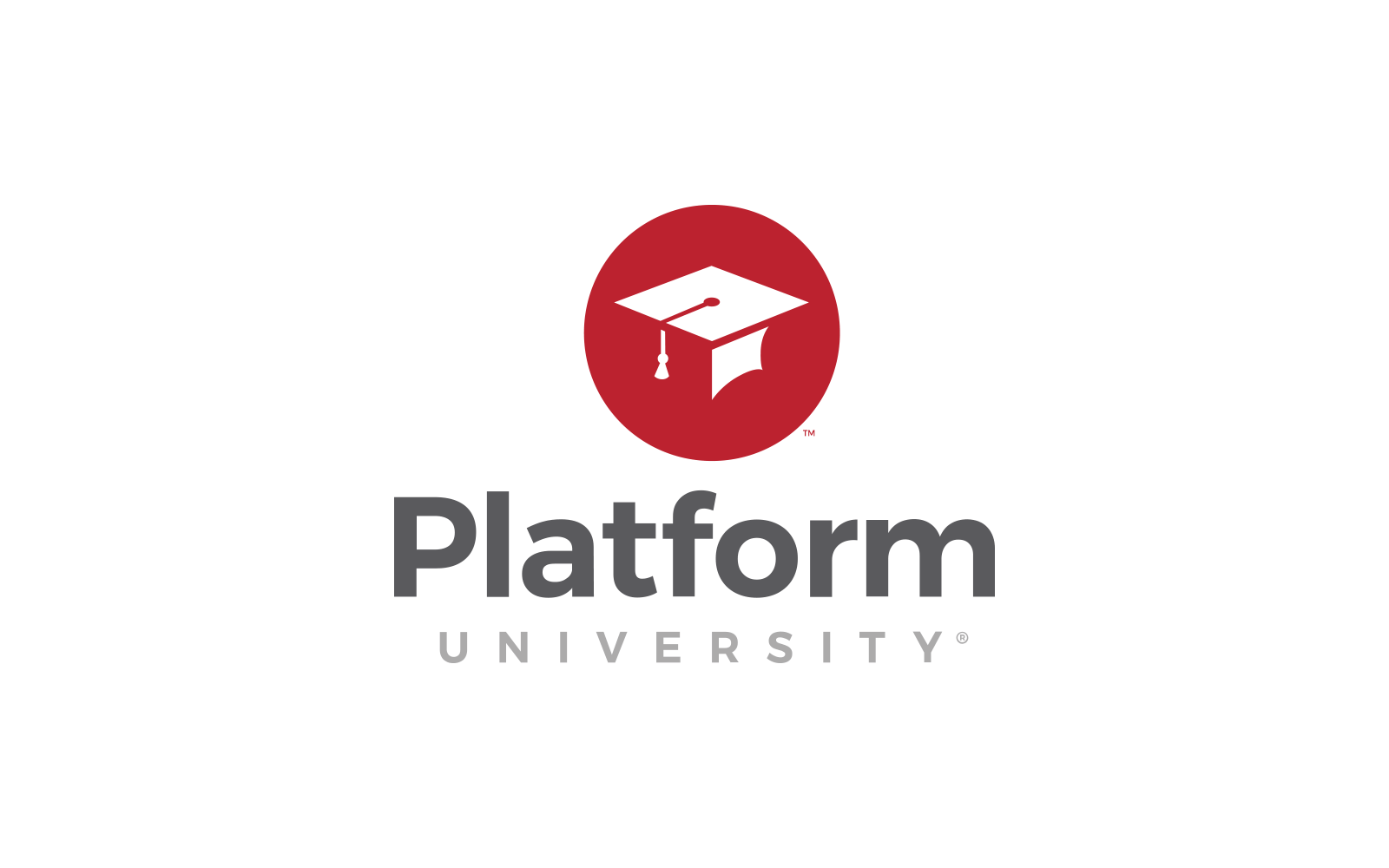
A Revitalized Membership Experience
Remember that part where I mentioned that a brand isn’t merely a logo or visual element? The membership experience is where we get to see this principle embodied.
Keeping in mind Platform University’s new brand strategy, a new membership site was custom-coded on WordPress from the ground up.
I had the opportunity to work collaboratively with John, the Dean, who sketched out ideas which I added to with some sketches of my own.
From there, I wireframed and finally coded out the custom theme.
Based on the collaboration, here are some of the features worked into the all new membership experience:
Custom-tailored content: The front-page now provides a set of “getting started” instructions followed by content tailored to each member’s specific needs.
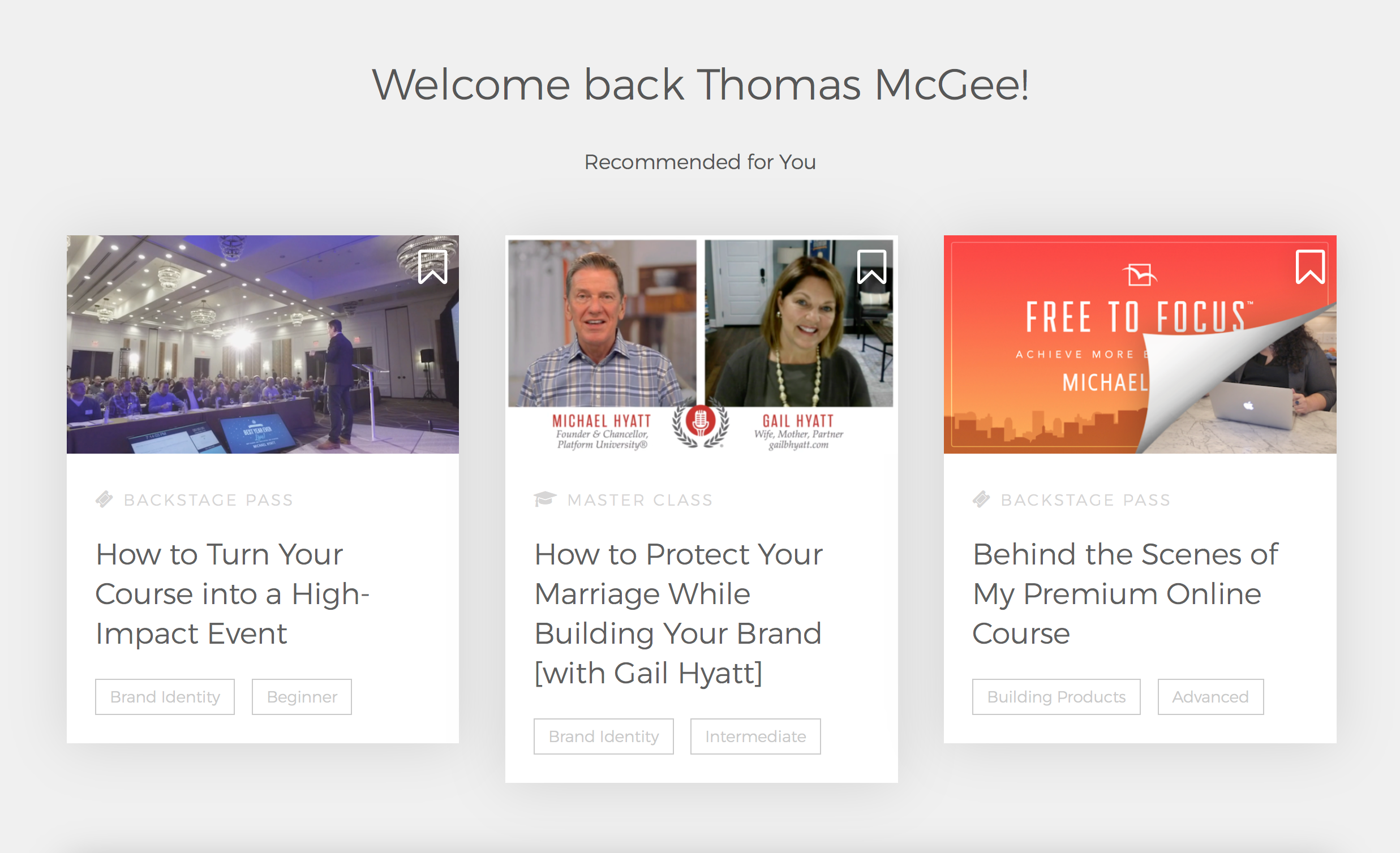
All New Dynamic Search: Platform University has always been full of top-notch content. The revamped dynamic search feature has been tailored to make finding lessons easier than ever.
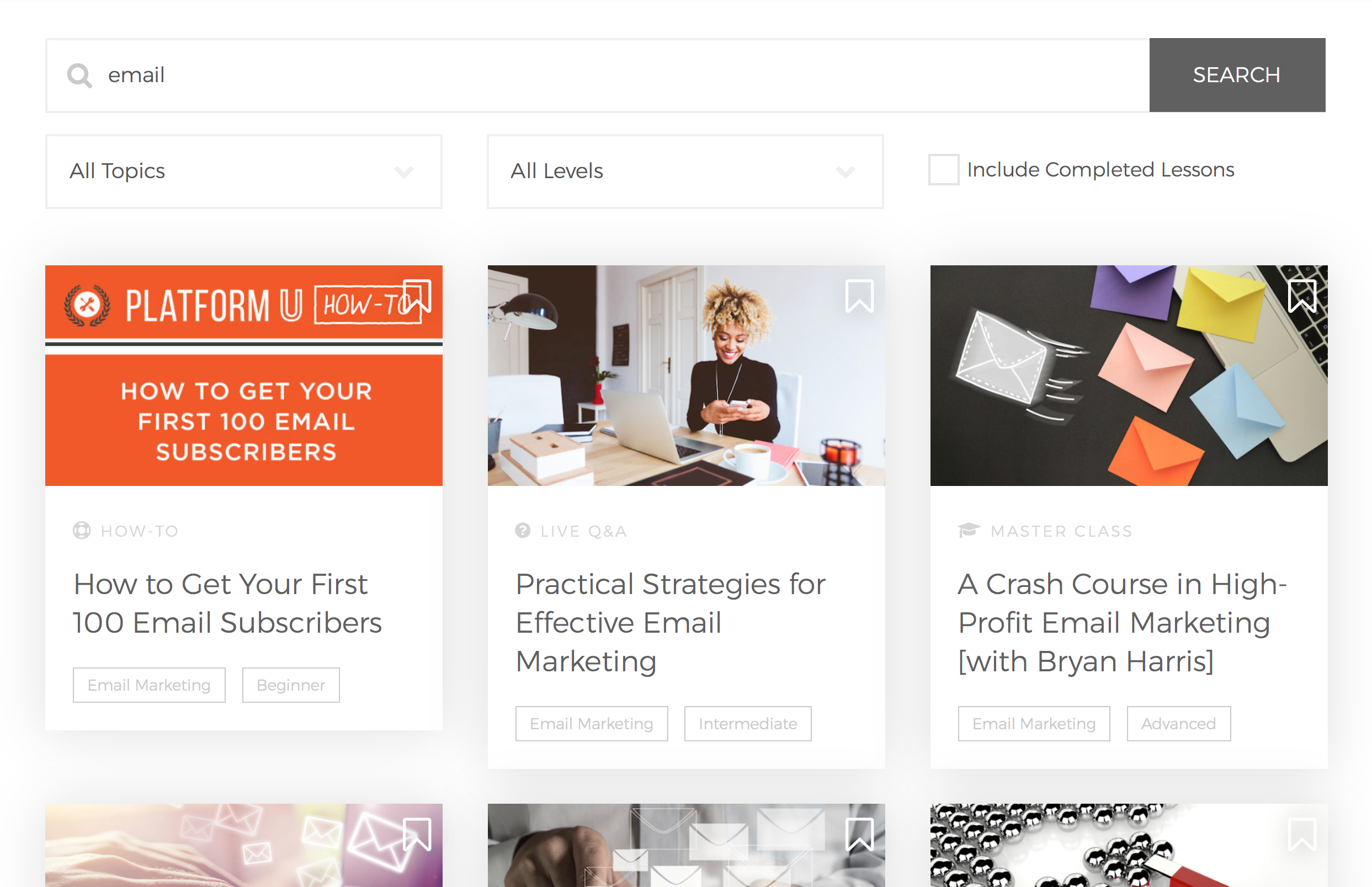
Progress Tracking: An essential aspect of being a Platform member is being able to know what’s been completed and what still needs to be covered. Every lesson now has the ability to be “completed” when finished so you can quickly move on to further lessons while knowing which ones you’ve already completed.

Learning Tracks: A big part of improving Platform University’s brand experience was in finding the right way to organize content. That’s why we decided to utilize something new called “Learning Tracks.” These have been designed to “group” similar lessons together into a sort of “mini-course” meant to help you become proficient in a specific topic quickly.
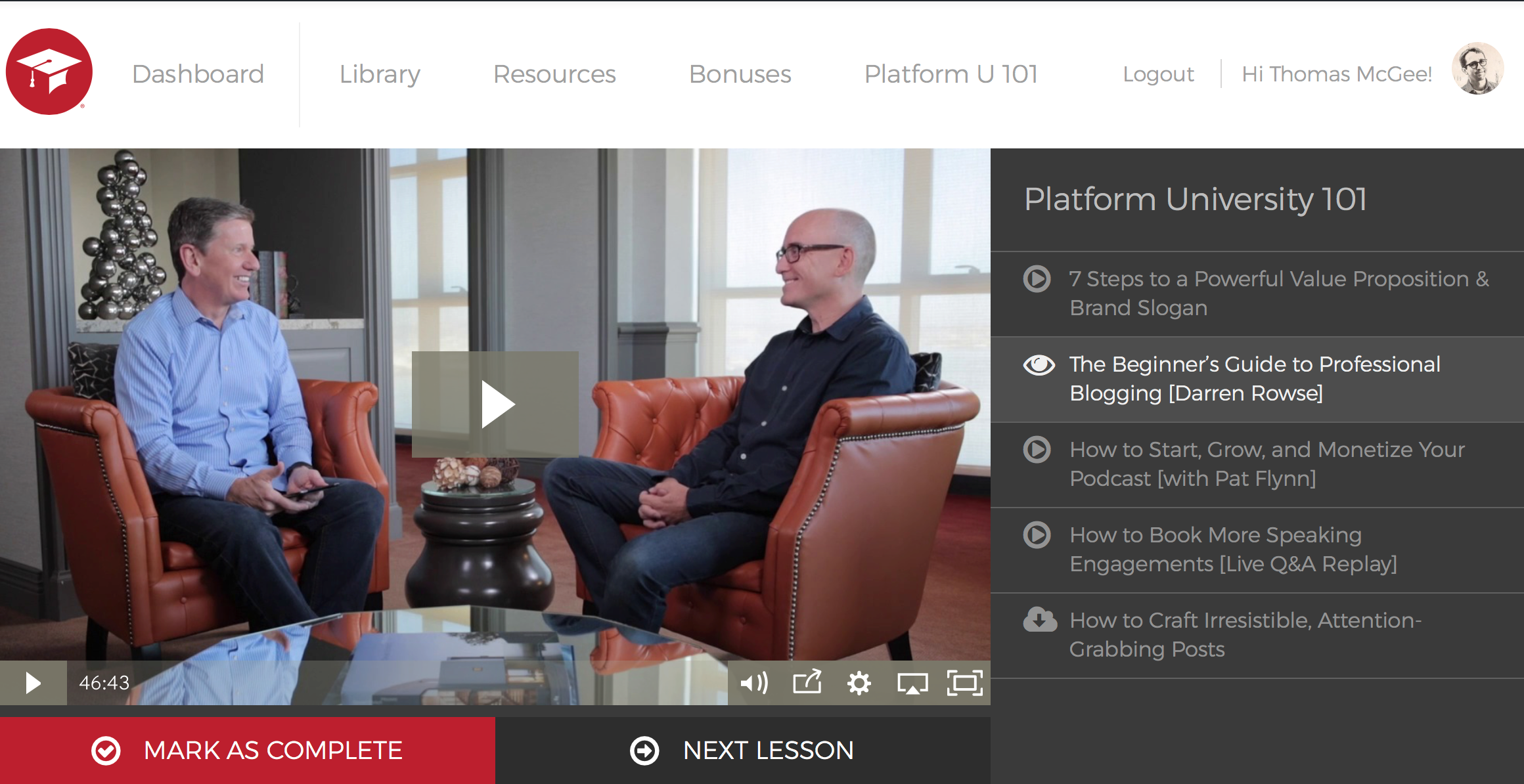
Bookmarks: In Platform University, it’s not uncommon to come across a lesson so valuable, you’ll want to review it again in the future—as many students were finding. By popular request, we integrated a “bookmarks” feature which enables students to save lessons to review at a later date.
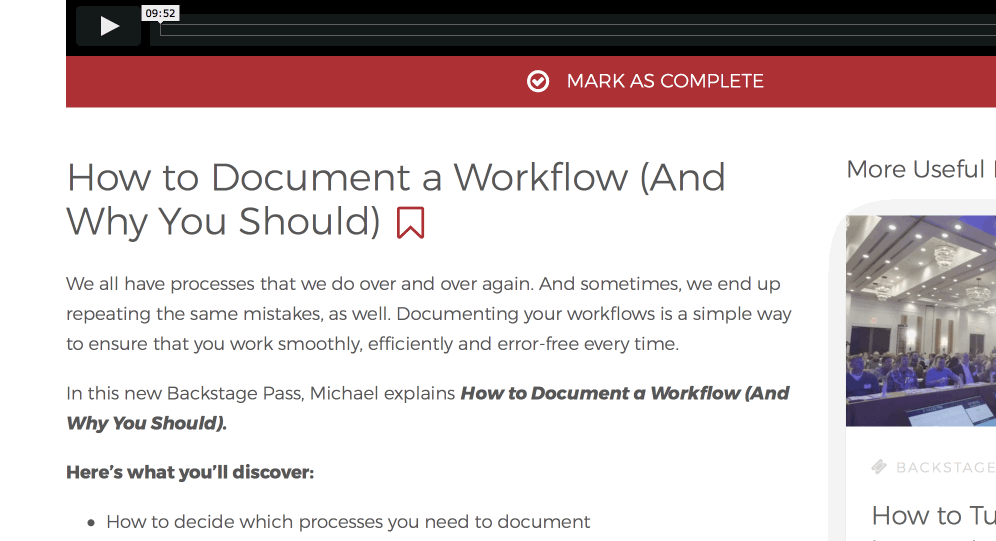
Proficiency Levels: Beyond the other means of organizing content, Platform University helps you find the lessons best suited to your proficiency, whether brand new, or long-time platform-building veteran.
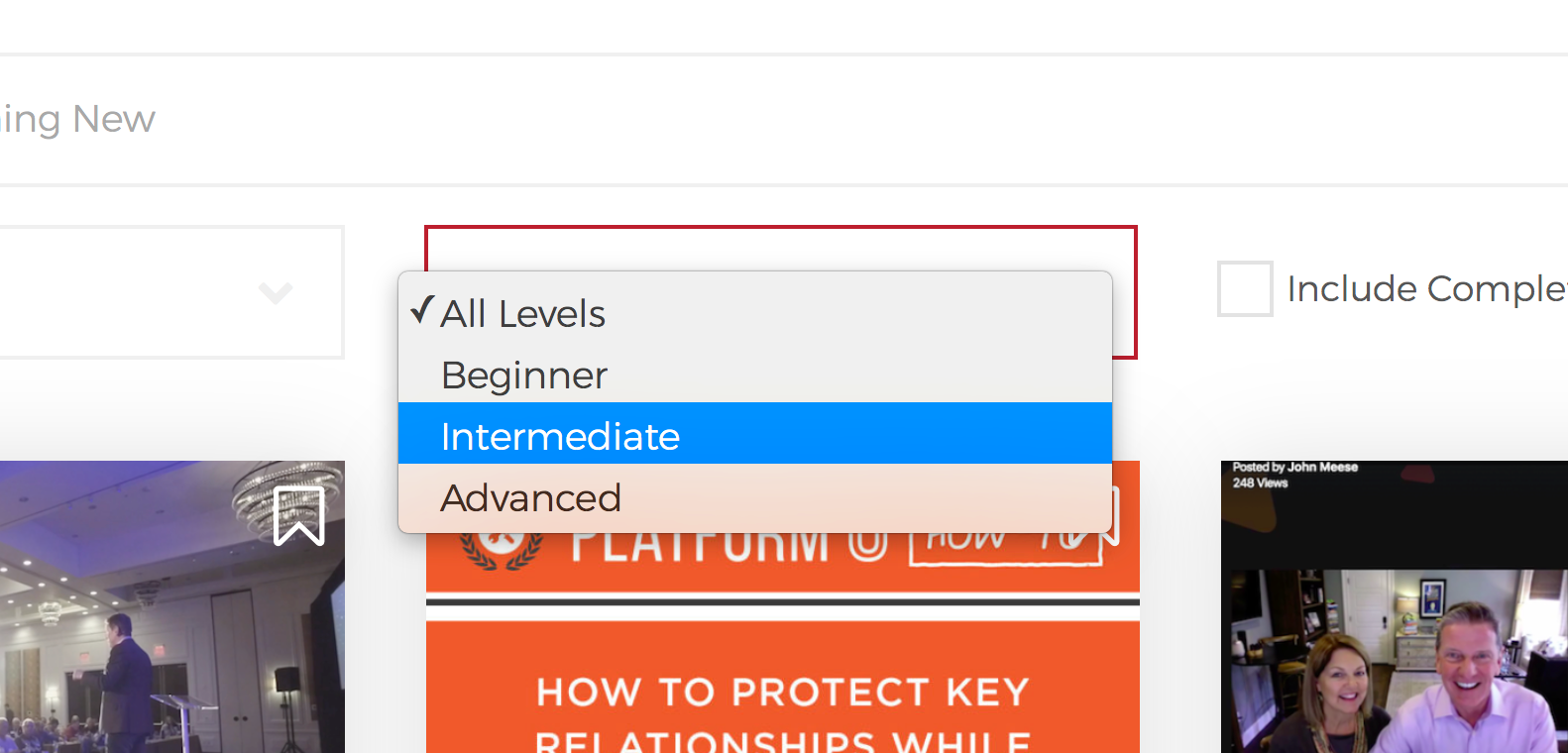
A New, Front-Facing Blog
Another part of John’s strategy when it came to revamping Platform University, was creating a front-facing blog. This further underscored the brand’s constant commitment to offer value to anyone building a platform—even those who aren’t yet Platform University members.
This is vital to any brand strategy: delivering on the brand’s promise not only to those who are current customers but those who might be in the future.
Similar to the design of the membership site—organization was key.
Content is grouped into topic-specific “sections”—not only to make it simple to see the latest, but also other recent posts in the same category.
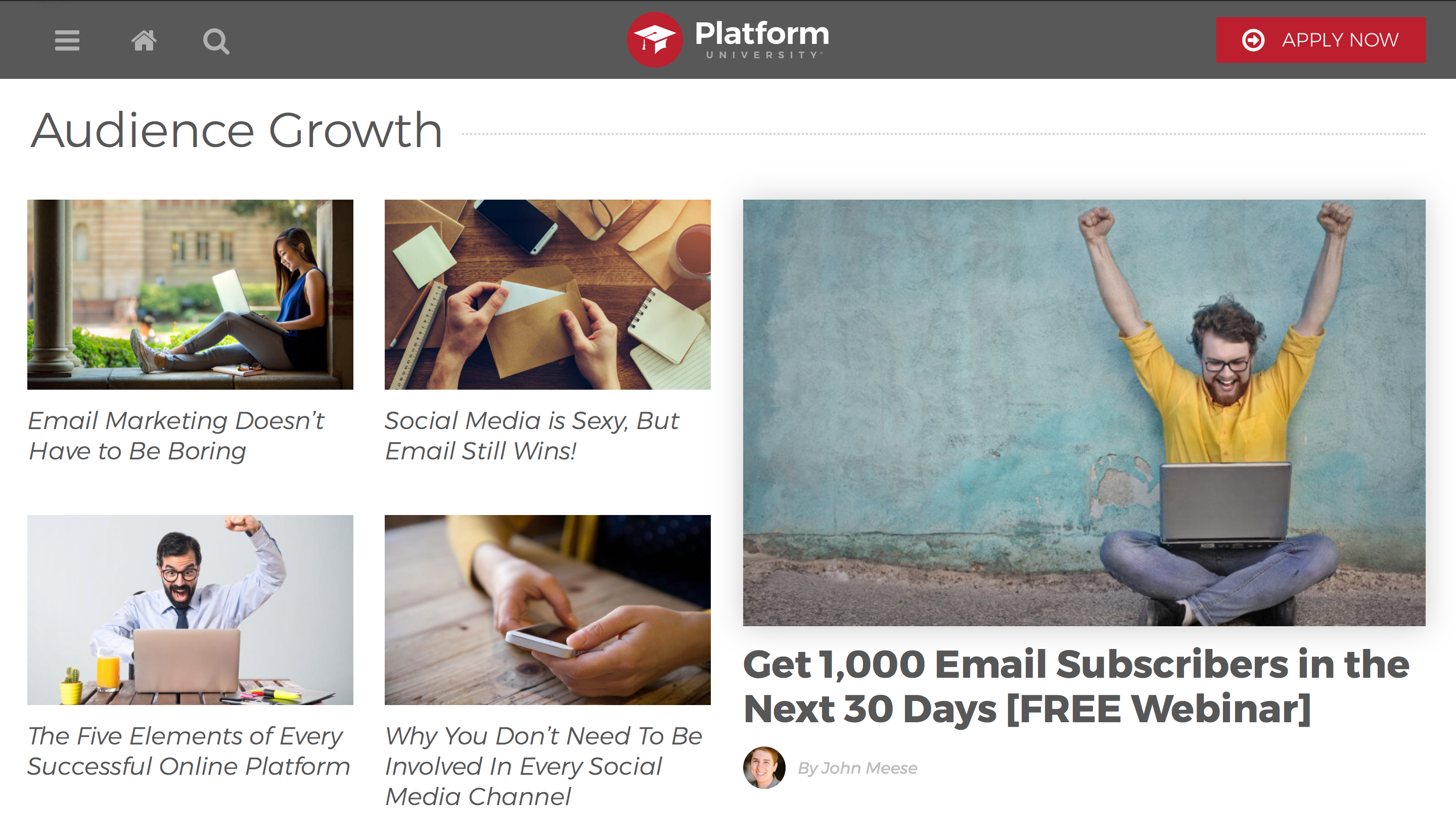
The Takeaway
As a platform-builder, there’s plenty to take away from the Platform University rebrand. First and foremost, if you’re not already a member—make sure to apply!
Secondly, it serves as an excellent example that building a brand goes far beyond purchasing a stock logo or picking out some colors.
Rather, building a brand is a long-term, strategic process that involves specific goals and results embodied in every piece of collateral and touchpoints.
As we can see with Platform University, combining an overarching brand strategy with solid design practices makes for a more recognizable brand, better membership experience, all while reestablishing its leadership position in the industry.
The bottom line: investing the time and resources required for a custom-tailored, brand-centric website experience is well worth it—regardless of your market.



